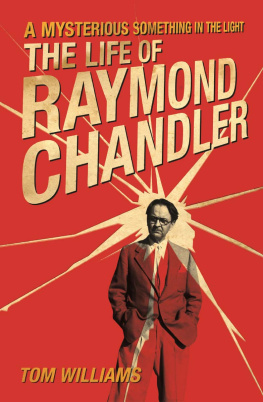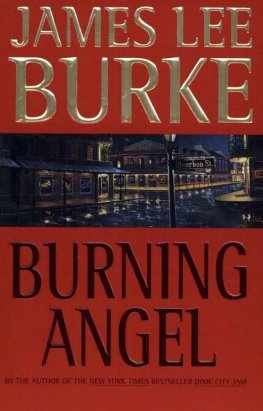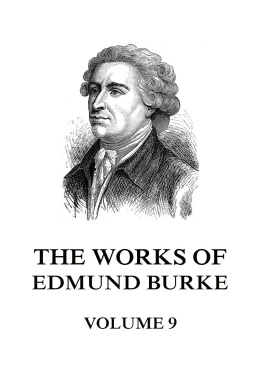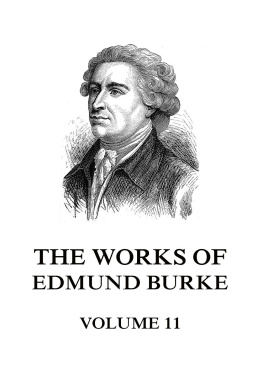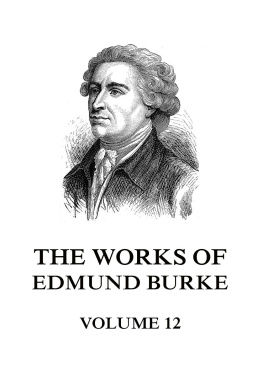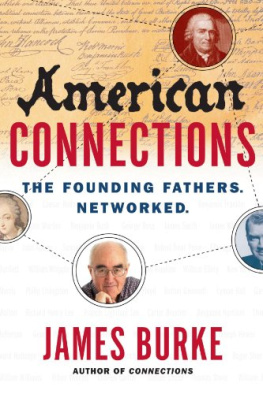Tom Williams - Burke at Waterloo (James Burke)
Here you can read online Tom Williams - Burke at Waterloo (James Burke) full text of the book (entire story) in english for free. Download pdf and epub, get meaning, cover and reviews about this ebook. year: 2020, publisher: Big Red, genre: Detective and thriller. Description of the work, (preface) as well as reviews are available. Best literature library LitArk.com created for fans of good reading and offers a wide selection of genres:
Romance novel
Science fiction
Adventure
Detective
Science
History
Home and family
Prose
Art
Politics
Computer
Non-fiction
Religion
Business
Children
Humor
Choose a favorite category and find really read worthwhile books. Enjoy immersion in the world of imagination, feel the emotions of the characters or learn something new for yourself, make an fascinating discovery.
- Book:Burke at Waterloo (James Burke)
- Author:
- Publisher:Big Red
- Genre:
- Year:2020
- Rating:5 / 5
- Favourites:Add to favourites
- Your mark:
- 100
- 1
- 2
- 3
- 4
- 5
Burke at Waterloo (James Burke): summary, description and annotation
We offer to read an annotation, description, summary or preface (depends on what the author of the book "Burke at Waterloo (James Burke)" wrote himself). If you haven't found the necessary information about the book — write in the comments, we will try to find it.
Burke at Waterloo (James Burke) — read online for free the complete book (whole text) full work
Below is the text of the book, divided by pages. System saving the place of the last page read, allows you to conveniently read the book "Burke at Waterloo (James Burke)" online for free, without having to search again every time where you left off. Put a bookmark, and you can go to the page where you finished reading at any time.
Font size:
Interval:
Bookmark:
Burke at Waterloo
Tom Williams
First published by Accent Press Ltd 2015
This edition published by Big Red 2020
ISBN 978-1-9162635-8-1
Copyright Tom Williams 2020
The right of Tom Williams to be identified as the author of this work has been asserted by the author in accordance with the Copyright, Designs and Patents Act 1988.
The story contained within this book is a work of fiction. Names and characters are the product of the authors imagination and any resemblance to actual persons, living or dead, except in cases of historical figures, is entirely coincidental.
All rights reserved. No part of this book may be reproduced, stored in a retrieval system, or transmitted in any form or by any means, electronic, electrostatic, magnetic tape, mechanical, photocopying, recording or otherwise, without the written permission of the publishers
Chapter One
Our Man in Paris
Major James Burke had once faced a firing squad. The absolute certainty (as it seemed) of death had, he recalled, given him a peculiar calm. It was one of the few times in his life that there was absolutely nothing to worry about.
A firing squad, then, held no fears for him. A meeting with Colonel Gordon, on the other hand, was always a cause for anxiety.
I dont know whats bothering you, sir. William Brown was, as usual, infernally cheerful. Sometimes Burke thought that there were advantages to the more traditional valet: a taciturn man, a man of reserve and propriety. But then Browns role was hardly that of a traditional valet. A master of secret writing, a wizard with a picklock, and gifted with an unnatural ability to kill quickly and quietly, Brown was the best man Burke could imagine covering his back in a crisis.
Brown was still chattering happily as he brushed down Burkes uniform coat. It can hardly be bad news now. Old Boneys safe on Elba and Europes at peace. Most likely thing is that Gordon dont need you any more.
Now that, Burke thought, really would be good news. For twenty years he had been spying for Britain. His work had not been without its rewards. There had been good times as well as bad, and, if the opportunities for plunder were less than in the regular Army, he had still been able to supplement his pay from time to time at the expense of Britains enemies. But it was hardly the life he had imagined when he had left the genteel poverty of Ireland to take up the uniform of a soldier. Perhaps now he would be allowed to return to regular duties. Peace had come, and England was full of men suddenly freed from the Army, but Burke thought there would still be room for him. There was a lot to be said for being a major in a peacetime army. The red coat attracted the ladies and there was always the odd colonial war that offered the possibility of profit without much risk of becoming a casualty of battle. Yes, a respectable post in a decent regiment would suit him well enough. Perhaps that was what Gordon was going to offer.
Burke had always found Gordon less easy to deal with than his predecessor, Colonel Taylor. Burke had the impression that, like himself, Gordon felt that spying was really rather a dirty business. It was as if he didnt approve of his own job. He certainly didnt seem to approve of the men who worked for him.
You once served as a Staff officer to Sir Arthur Wellesley, I believe. His tone suggested that he found it barely credible that someone like Burke might ever have held such an exalted position.
Yes, sir. When he was planning the invasion of South America.
An invasion that never happened.
Burke said nothing. The invasion hadnt happened because his own work in Spain had suggested that action in the Peninsula would be a more effective way to wage war on Napoleon. Yet Gordons tone seemed to suggest that Wellesleys failure to seize Spanish America was somehow Burkes fault.
It is said, Gordon continued, that Sir Arthur never forgets a face. He looked at Burke, as if struggling with the idea that Sir Arthur would have remembered that particular physiognomy. Burke thought the implication unfair. He was not a particularly vain man, but he was proud of his looks. He was by now in his early forties, but his brown hair remained thick with barely a touch of grey at the temples and his eyes had lost none of the reckless charm that had won over many a woman throughout his career.
Anyway, he seems to have remembered you. For a moment, Burke thought this could be the news that he was hoping for. A place on Sir Arthurs Staff would be the ideal post for him. Gordons expression remote, yet at the same time somehow disapproving made him realise that, whatever Sir Arthur wanted, it was unlikely that Gordon would be the bearer of glad tidings.
He describes you as a bright young man. Still, that was a few years ago. Gordon let his eyes drop to the paper on his desk. Burke was sure that he knew the contents by heart, but he waited while his superior re-read the few lines of fine copperplate. Theres trouble in Paris. Bonapartists; plots; sedition. Wellesley needs a man who knows how to fit in. Find out whats going on. That sort of thing.
Damn, Burke thought. Spying. And dangerous spying in the heart of what, until a few months previously, had been the heart of the enemys empire.
Your record, Gordon continued, shows that you served with the French.
Regiment of Dillon, sir. Before we were at war.
Gordon sniffed. The point is that you know how the French army works. You can pose as a veteran. Quartermaster will fit you up with a uniform. Two, actually. Youll be taking Brown with you. He turned back to his papers and began writing. After a moment, Burke realised he was being dismissed. As he walked to the door, Gordon looked up and spoke again.
It should suit you. I think youll do a good job.
Thank you, sir.
He left, closing the door quietly behind him and savouring the moment. From Colonel Gordon, those last seven words were praise indeed.
The uniforms arrived at Burkes quarters the next day, delivered by a young captain with the rest of Burkes briefing. It was, Burke thought, quite ridiculously straightforward. He would travel to Paris as an officer on attachment to the Duke of Wellington. He would change into the uniform and he would then emerge onto the Paris streets as Major Bergotte. He had used the name before, but many years ago and in a country far away, and he felt it suited him. He would be a victim of the British success in the Peninsula, wounded and cut off from his regiment and only recently able to get back to Paris.
William Brown was to travel separately. He was to take the role of a prisoner of war, lately released by the British and carrying the massive sense of grievance that so many French prisoners felt towards their captors. Williams story was credible enough. Paris was flooded with such men and he, too, had served in the Regiment of Dillon, so he could easily pass as a French soldier. When he did actually fight under French command he barely spoke the language, as all his comrades were British, but the nature of his work with Burke meant that he had acquired a fluency that would once have seemed impossible. The only thing that let him down, as Burke was quick to tell him, was that he looked far too healthy to have just emerged from years in Dartmoor.
Well, maybe we could say I was taken prisoner recently.
Hardly. You have to have been in England for long enough to explain why no one in Paris will remember having fought alongside you. You were captured early in the Peninsular campaign and have been rotting in jail ever since.
Williams expression suggested that he could see the way this was going and didnt like it.
Im afraid youre confined to your quarters on a restricted diet. Dont worry, William. Burke smiled reassuringly. Were not leaving for a couple of weeks. Well have you pale, thin, and flabby in no time.
Next pageFont size:
Interval:
Bookmark:
Similar books «Burke at Waterloo (James Burke)»
Look at similar books to Burke at Waterloo (James Burke). We have selected literature similar in name and meaning in the hope of providing readers with more options to find new, interesting, not yet read works.
Discussion, reviews of the book Burke at Waterloo (James Burke) and just readers' own opinions. Leave your comments, write what you think about the work, its meaning or the main characters. Specify what exactly you liked and what you didn't like, and why you think so.



